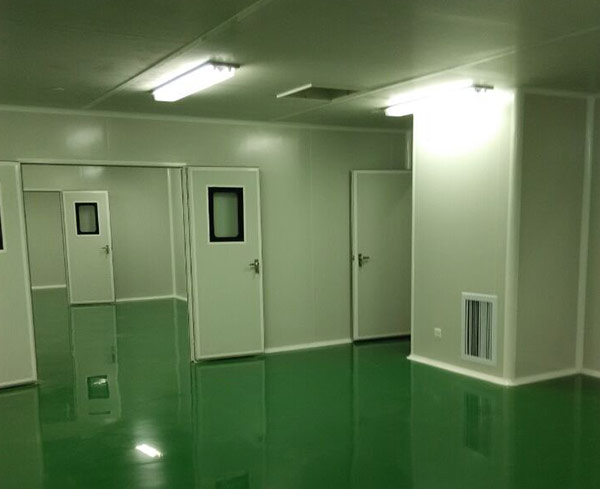24-hour service hotline:0755-29103270
Welcome to Shenzhen Zhongjing Global Purification Technology Co., Ltd.!

backtrackCurrent location:Home / Engineering / Medical equipment GMP workshop
Author: Shenzhen Zhongjing Global Purification Technology Co., Ltd.Time:2018-07-26 10:45:42Views:3123

Medical devices are widely used in requirements
a) Sterile medical devices or single-packaged parts that are implanted and inserted into the blood vessels and require subsequent processing (such as filling and sealing) in the local 100-level clean area under 10,000, which (not cleaned) The production area of the parts, the final cleaning, assembly, initial packaging and sealing, etc. should be no less than 10,000 cleanliness level.
Example
Implanted blood vessels: for example, vascular stents, heart valves, artificial blood vessels, and the like.
Interventional blood vessels: various intravascular catheters, etc. Such as central venous catheters, stent delivery systems, etc.
b) Sterile medical devices or single-packaged parts that are implanted into human tissues, directly or indirectly connected to blood, marrow cavity or unnatural lumens, processing (not cleaning) parts, final cleaning, assembly The production area such as the initial packaging and its sealing should not be lower than the 100000 level of cleanliness.
Example
Implanted into human tissue instruments: pacemakers, subcutaneous implantable applicators, artificial breasts, etc.
Direct contact with blood: plasma separators, blood filters, surgical gloves, etc.
Indirect contact with blood: infusion sets, blood transfusion devices, intravenous needles, vacuum blood collection tubes, etc.
Bone contact devices: intraosseous instruments, artificial bones, etc.
c) The processing of the sterile medical equipment or single-package factory (non-cleaning) parts that are in contact with the damaged surface and mucous membrane of the human body, the final fine washing, assembly, initial packaging and sealing shall be in the clean room of not less than 300,000 class. (in the area).
Example
Contact with the damaged surface: burn or wound dressing, medical absorbent cotton, absorbent gauze, disposable sterile surgical supplies such as surgical pad, surgical gown, medical mask, etc.
Contact with mucous membranes: sterile catheter, endotracheal intubation, intrauterine device, body lubricant, etc.
d) The initial packaging materials that are in direct contact with the surface of the sterile medical device and are not used for cleaning, the setting of the cleanliness level of the production environment should follow the same principle as the cleanliness level of the production environment, so that the quality of the initial packaging material To meet the requirements of the packaged sterile medical device, if the initial packaging material is not in direct contact with the surface of the sterile medical device, it should be produced in a clean room (area) of not less than 300,000.
Example
Direct contact: initial packaging materials such as applicators, artificial breasts, catheters, etc.
Not in direct contact: initial packaging materials such as infusion sets, blood transfusion devices, syringes, etc.
e) Sterile medical devices (including medical materials) that are processed or processed using aseptic techniques shall be produced in a Class 100 clean room (area) at Class 10,000.
Example
Such as the preparation of anticoagulant, maintenance fluid in the production of blood bags, aseptic preparation and filling of liquid products.
The crimping and application of the vascular stent.
Claim:
The temperature and relative humidity of a clean room (zone) should be compatible with the requirements of the pharmaceutical production process. When there is no special requirement, the temperature should be controlled at 18-26o C, and the relative humidity should be controlled at 45-65%.
Second, the design of the medical device workshop pays attention to the distribution of functions, and the personnel change clothes and wash materials, and the materials are transmitted in and out. Air conditioning system design, pure water system design.
Zhongjing Global is committed to the design and construction of the GMP workshop for medical device purification workshops, serving many second-class and three-category medical device companies.
